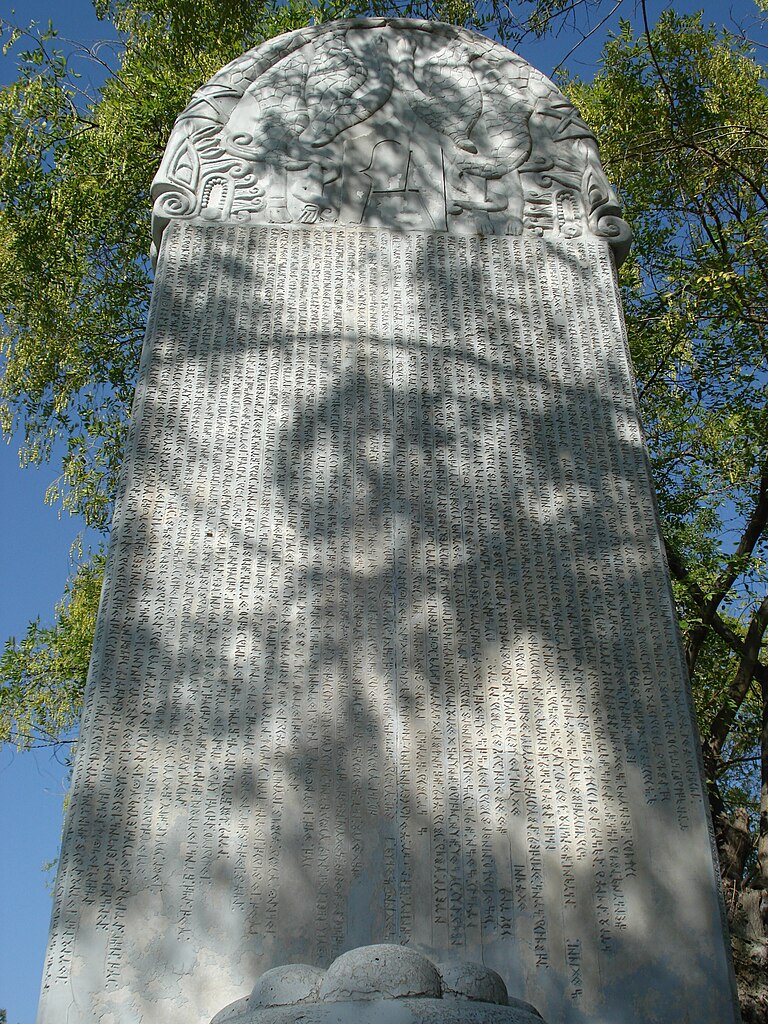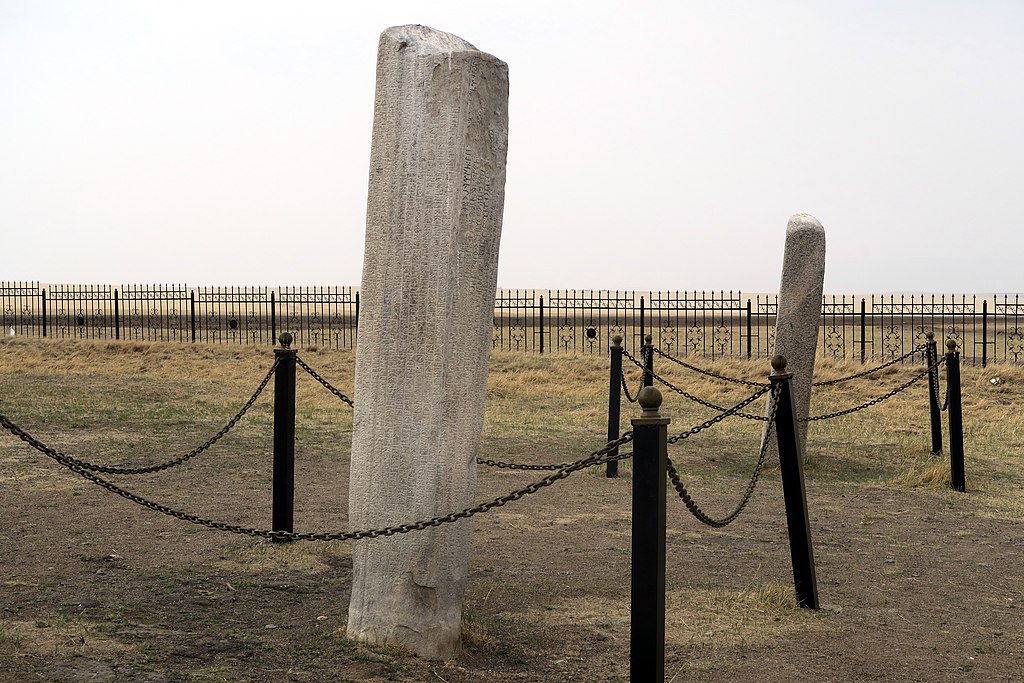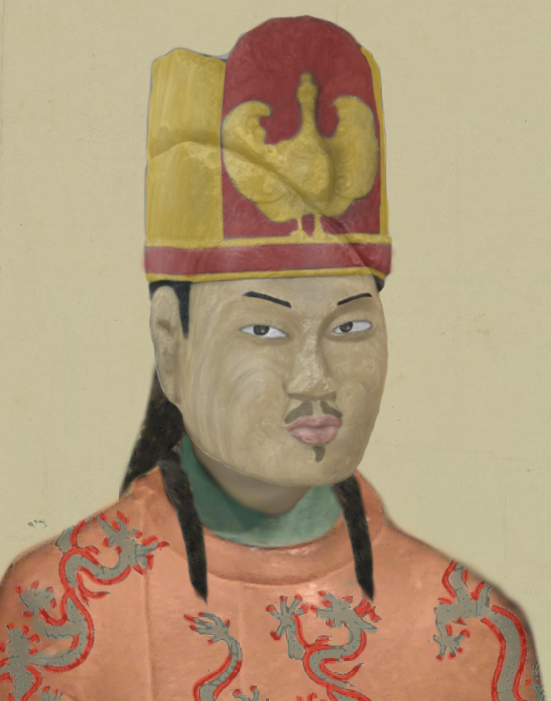لطالما شككت بالروايات حول المجازر التي أحدثها المغول في العراق والآثار طويلة الأمد لغزوهم لأسباب منطقية عديدة، واليوم بينما نشهد حصيلة القتلى في مجزرة تحدث بأقصى فارق قوة ممكن بين مجموعتين بشريتين يمكن أن نحصل على صورة أخرى نتخيل فيها طبيعة وستراتيجية القتل قبل الف سنة. يسرد كتاب التاريخ المنهجي في العراق بإحدى السنوات أن […]
When someone doubts a fact like “Stalin is a criminal”, we may question our information again, what did Stalin do? Many evidences of cruelty may come to mind: the Ukrainian famine of 1932-1933, the Gulag, and the mass transportation of many groups inside the vast geography of Eurasian plateaus. Here, the communist friend who questions […]

(عربي) The largest part of Orkhon inscriptions is a speech of the Khagan, or the ruling power, represented by the prince Kul Tigin, his brother the Khagan Bilge, or Tonyukuk the Wise. There are many repeated sentences that represent the thinking of the Khagan; what he wants the people to know or to say about […]

(عربي) The eastern side of Orkhon inscriptions’ stone starts by the following: “To the East I have made campaigns as far as the Shantung plain, and almost reached the sea; to the South I have made campaigns as far as Tokuz-Ersin (?) and almost reached Tibet; to the West I have made campaigns beyond Yenchii-iiguz […]

(عربي) According to Wiktionary, the origin of the word Turk goes back to the word “root”, “ancestry” or “race” in the old Turkic, the language of the Orkhon inscriptions. But according to the inscriptions, it’s clear that the term isn’t used as an umbrella term for all the Turkic peoples. It might be similar to […]
Orkhon Inscriptions: a review

(عربي) Orkhon inscriptions are one of the oldest written texts in Turkic languages. The old Turkic script known as Orkhon script – which is a descendant of the Aramaic script – is attributed to it and named after it. The inscriptions are named after the place in which their memorial installations were found which is […]

(English) الجانب الأكبر من مخطوطات أورخون يتحدث بلسان الخاقان أو على الأقل من منظور السلطة. في البداية يبدأ الكلام على لسان غل تيكين، ثم أخوه، ومن ثم الحكيم تونيوكوك. ويتخلل ذلك الكثير من الجمل المكررة التي تعكس طبيعة تفكير الحاكم أو ما يود الحاكم أن يعرفه الناس عنه أو كلاهما. وفيما لا يمكن التحقق من […]

(English) يبتدأ الجانب الأيسر من اللوح بالقول: الى الشرق قمت بحملات وصلت حتى سهل شانتونغ (غير معروفة) وكدت أن اصل البحر (يقصد البحر الأصفر ربما أو المحيط الهادئ)، الى الجنوب قمت بحملات حتى دوقوز ايرسن وكدت أن ابلغ التبت، وفي الغرب وصلت حتى نهر ينتشي يغوز، نهر اللؤلؤة، حتى البوابة الحديدية (بين بلخ وسمرقند الحاليتين)، […]
من هم الترك بحسب كتابات أورخون؟
(English) بحسب قاموس ويكيشنري، فإن كلمة ترك ترجع لجذر في التركية القديمة (لغة نقوش أورخون ذاتها) ويأتي من الجذر أو العرق. غير أن من الواضح وبحسب نقوش أوروخون فإن الترك لم تكن في ذلك الحين كلمة جامعة للشعوب التركية بل كانت تشبه بدرجة معينة ما يرد في اللهجة الرافدينية حين يقول البعض “عربنا” في الإشارة […]
قراءة في كتابات أورخون

(English) تعد نقوش أورخون أقدم نص وربما النص الوحيد لفترة طويلة دون أي تدوين باللغات التركية وينسب لها الخط التركي القديم المعروف بخط أورخون وهو من مشتقات الكتابة الآرامية. وتنسب تسمية النص الى المكان الذي تم فيه العثور على صخرة النقش في وادي اورخون في منغوليا وهو مكتوب باللغة التركية القديمة لأتراك الغوك ترك Göktürk، […]